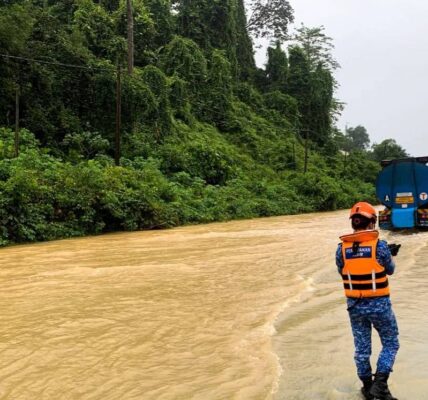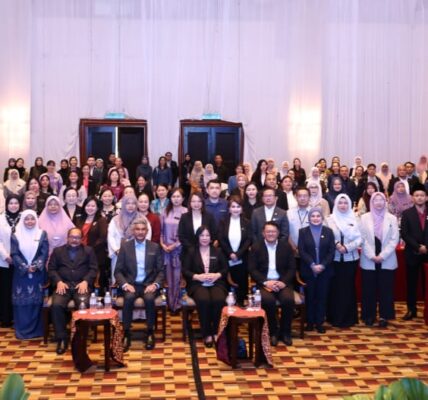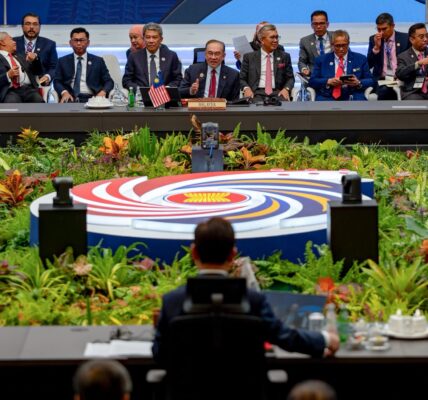Read Time:3 Minute, 18 Second
By: Cleophas John Gordon
KOTA KINABALU, — My first encounter with Tan Sri Anifah Aman took place in 2015 during my tenure as a reporter with the New Sabah Times, a publication then chaired by his eldest brother, Datuk Ayub Aman.
While the exact circumstances of that initial meeting have faded with time, my earliest substantive assignment involving him was the Malaysia Agreement 1963 (MA63) forum he organised at Universiti Malaysia Sabah (UMS).
As a newcomer to political reporting, witnessing a senior Barisan Nasional Cabinet Minister openly engage Opposition leaders on Sabah’s rights left a deep impression.
Tan Sri Anifah emerged early as a vocal advocate of Sabah’s constitutional entitlement to a 40 per cent revenue return from the Federal Government, as provided for under Articles 112C and 112D of the Federal Constitution. Despite sustained resistance and minimal support from fellow Cabinet members — including those from Sabah — he maintained his stand.
Through various forums, he brought together legal experts, civil society leaders, and politicians across the divide, often challenging the prevailing political narrative. Even as his elder brother, then Chief Minister Tun Musa Aman, was viewed as more accommodating to Federal positions, Tan Sri continued to assert Sabah’s rights.
The 2018 General Election became a turning point. Although Barisan Nasional lost power, Tan Sri retained his Kimanis parliamentary seat. However, his dissatisfaction with UMNO’s handling of MA63 prompted his resignation, underscoring his commitment to Sabah’s interests.
His victory was later annulled by the courts in 2019, yet he remained undeterred. He assumed leadership of Parti Cinta Sabah (PCS) and led the party to contest all 73 seats in the 2020 Sabah state election under the “Sabah for Sabahans” platform.
PCS did not secure any seats, but his resolve remained intact.
Today, PCS continues under his leadership as a component of the Gabungan Rakyat Sabah (GRS) coalition, which governed the state until the recent dissolution of the State Legislative Assembly.
Sabah’s political landscape remains fluid, illustrated by the recent departure of STAR and SAPP from GRS following disagreements over national alliances. Opposition parties including Warisan and UPKO have also adopted stronger positions on MA63 and Sabah-centric policies.
The Federal Government’s evolving stance on the 40 per cent entitlement highlights the ongoing complexities in federal-state relations.
Against this backdrop, Tan Sri Anifah’s conduct stands out. Rather than lamenting a reduction in political influence, he continues to prioritise collaborative engagement within GRS and constructive dialogue with Federal counterparts, recognising the importance of diplomacy in Malaysia’s federal framework. The lessons of Sabah’s political isolation in the 1990s further reinforce the wisdom of this approach.
Tan Sri’s diplomatic credentials are well established internationally. He has earned recognition in numerous countries and notably played a key role in advocating for Timor Leste’s admission into ASEAN — a contribution acknowledged personally by President Jose Ramos-Horta.
Should Tan Sri Anifah Aman represent Bongawan in the Sabah State Assembly, his determination, extensive experience, and global outlook are expected to bring tangible benefits to the constituency.
Tan Sri Anifah’s consistent advocacy for Sabah’s rights, balanced with a principled and diplomatic approach, underscores his stature as a statesman. His legacy is defined not only by political achievements but also by resilience, the ability to bridge divides, and international standing.
These are also the reasons I serve Tan Sri today — because of his steadfast vision and leadership. His ability to pair strong advocacy with pragmatic diplomacy reflects values that align with my own commitment to Sabah’s development.
Supporting a leader who places collective progress above political gain is essential, especially as Sabah navigates an increasingly challenging political environment.
As Bongawan faces a rapidly evolving landscape, the constituency stands to gain significantly from his leadership, clarity of purpose, and enduring pursuit of Sabah’s prosperity.
Cleophas John Gordon is a Sabah state civil servant and currently serves as Special Officer to Tan Sri Anifah Aman.






